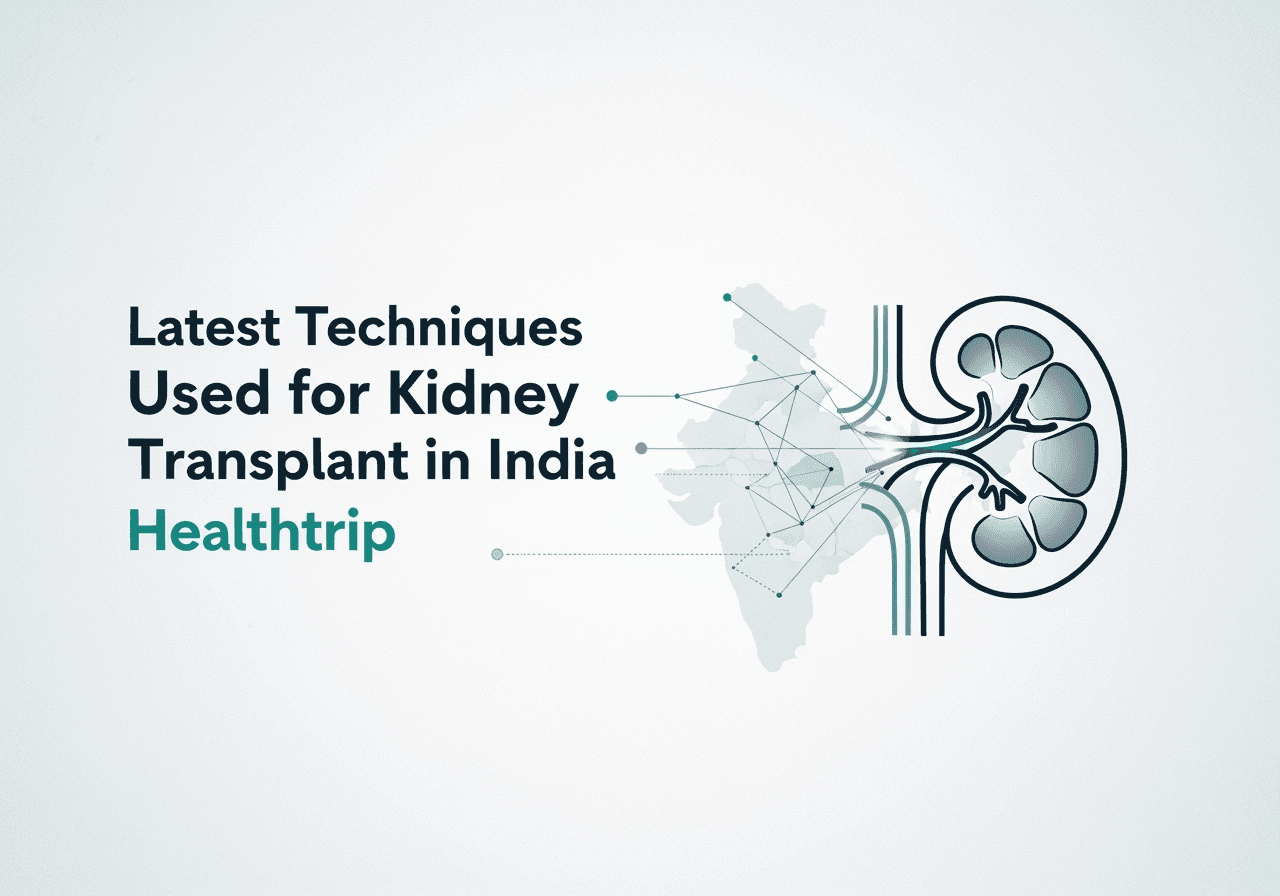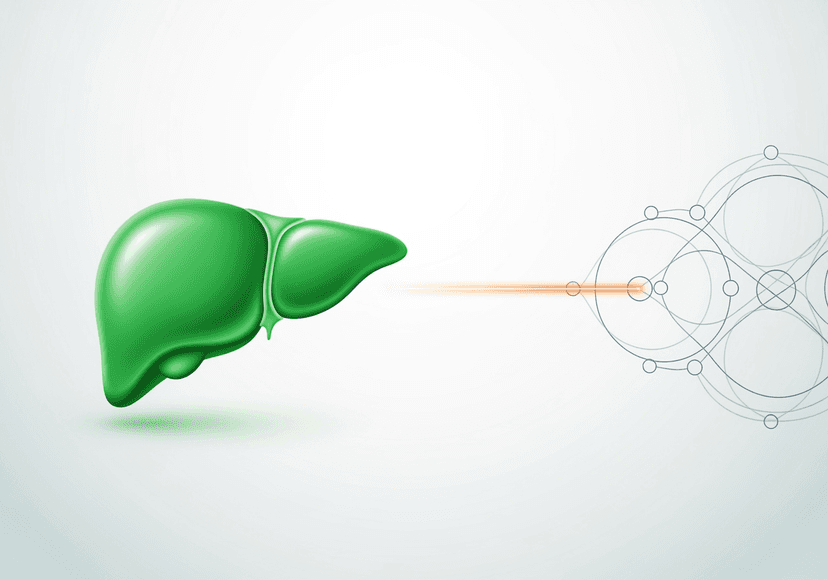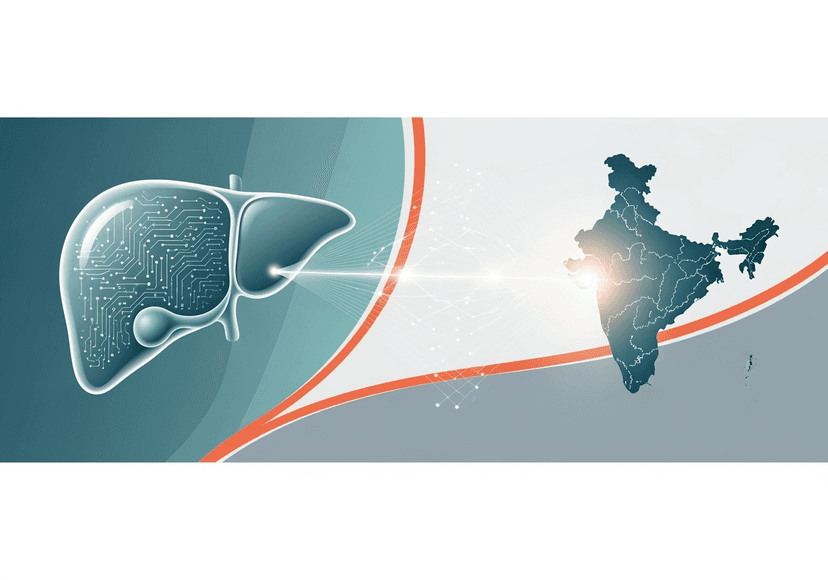
Latest Techniques Used for Kidney Transplant in India via Healthtrip
15 Oct, 2025
 Healthtrip
Healthtrip- Why Kidney Transplant is Necessary: Understanding End-Stage Renal Disease
- Advanced Kidney Transplant Techniques in India: A Technological Overview
- Robotic Kidney Transplant: Precision and Minimally Invasive Approach at Fortis Memorial Research Institute, Gurgaon
- Laparoscopic Donor Nephrectomy: A Minimally Invasive Option at Max Healthcare Saket
- Cutting-Edge Immunosuppression Protocols: Preventing Rejection After Transplant
- Determining Suitable Candidates: Who Benefits from Advanced Kidney Transplant Techniques?
- Success Stories: Real-Life Examples of Improved Outcomes with Advanced Techniques < li>Conclusion: The Future of Kidney Transplantation in India
Advanced Surgical Techniques
Kidney transplantation has undergone a remarkable evolution, with several innovative surgical techniques enhancing precision, minimizing invasiveness, and improving patient outcomes. One such advancement is laparoscopic nephrectomy, a minimally invasive procedure used for deceased donor kidney retrieval and living donor nephrectomy. Instead of a large incision, surgeons at hospitals like Fortis Memorial Research Institute, Gurgaon, make small incisions through which they insert specialized instruments and a camera. This technique results in less pain, reduced scarring, and a faster recovery time for the donor, which is a huge relief, right? Another significant advancement is robotic-assisted kidney transplantation, where surgeons use robotic arms to perform the transplant with greater precision and control. This technique allows for complex maneuvers and enhanced visualization, leading to better outcomes, especially in patients with challenging anatomy. Hospitals like Max Healthcare, Saket are at the forefront of adopting this cutting-edge technology. These advancements, carefully curated by Healthtrip, ensure patients receive the best possible care. Choosing the right hospital and surgical approach is a big decision, and we are here to help you navigate it!
Most popular procedures in India
Immunosuppression Protocols
Immunosuppression is a critical aspect of kidney transplantation, preventing the recipient's immune system from rejecting the new kidney. Over the years, immunosuppression protocols have become more sophisticated, with the goal of minimizing side effects while effectively preventing rejection. Induction therapy, often using monoclonal antibodies, is administered immediately after the transplant to suppress the immune system's initial response. Maintenance immunosuppression involves a combination of drugs, such as calcineurin inhibitors (CNIs), antimetabolites, and steroids, tailored to each patient's individual needs. Newer immunosuppressant drugs, like belatacept, offer an alternative to CNIs, potentially reducing long-term complications such as kidney damage and cardiovascular issues. Fortis Hospital, Noida, employs these refined protocols, focusing on individualized treatment plans to reduce the risk of rejection and improve long-term graft survival. Healthtrip ensures access to the most advanced and personalized care, making the journey to a successful transplant smoother and more manageable. It's all about finding the sweet spot where your body accepts the new kidney without unnecessary side effects, and we’re here to guide you!
Wellness Treatments
Give yourself the time to relax
Lowest Prices Guaranteed!

Lowest Prices Guaranteed!
Minimally Invasive Approaches for Recipients
Traditional kidney transplantation involved a large incision, leading to considerable post-operative pain and a prolonged recovery period. However, minimally invasive approaches have revolutionized the recipient's surgical experience. Laparoscopic kidney transplantation, as performed at hospitals like Fortis Escorts Heart Institute in New Delhi, involves smaller incisions, resulting in less pain, reduced scarring, and a faster return to normal activities. These techniques utilize specialized instruments and cameras, allowing surgeons to perform the transplant with precision and minimal disruption to surrounding tissues. Furthermore, some centers are exploring robotic-assisted techniques to enhance surgical precision and improve outcomes in complex cases. These advancements not only improve the patient's physical recovery but also contribute to their overall psychological well-being. Healthtrip understands the importance of a comfortable and speedy recovery, and we’re committed to connecting patients with the best minimally invasive options available. After all, nobody wants to spend more time recovering than necessary, right?
Management of Post-Transplant Complications
While kidney transplantation offers a new lease on life, managing post-transplant complications is essential for ensuring long-term graft survival and overall health. Potential complications include infection, rejection, cardiovascular events, and medication side effects. Regular monitoring and prompt intervention are crucial. Leading hospitals, such as Max Healthcare Saket and Fortis Memorial Research Institute, Gurgaon, have dedicated transplant teams that provide comprehensive post-operative care. They use advanced diagnostic tools to detect complications early and implement appropriate treatment strategies, tailoring them to each patient’s specific needs. For instance, if rejection is suspected, a biopsy can be performed to confirm the diagnosis, and adjustments to the immunosuppression regimen can be made. Healthtrip collaborates with hospitals that prioritize comprehensive follow-up care, ensuring patients receive the support and expertise needed to manage any post-transplant complications effectively. This holistic approach is what sets Healthtrip apart – we care about your long-term well-being and are here to ensure a smooth journey, every step of the way. We're like your personal transplant support team, cheering you on and providing guidance!
Why Kidney Transplant is Necessary: Understanding End-Stage Renal Disease
Imagine your kidneys, those unsung heroes working tirelessly behind the scenes, day in and day out, filtering waste and toxins from your blood. They're like the body's diligent sanitation workers, ensuring everything runs smoothly. But what happens when these vital organs start to fail? That's where End-Stage Renal Disease (ESRD) comes in, a condition where your kidneys have lost their ability to function effectively, leading to a build-up of harmful substances in your body. It's not just about feeling a bit under the weather; ESRD can lead to serious health problems like heart disease, high blood pressure, bone disease, and nerve damage. It’s a tough situation, no doubt, and it affects not just your physical health but also your overall quality of life, impacting your energy levels, diet, and even your emotional well-being. Dealing with ESRD is like navigating a maze, and it can sometimes feel isolating. So, what options are available when kidneys are failing? Well, dialysis is one route, acting as an artificial kidney to filter your blood. However, kidney transplantation offers a more permanent solution, giving you a chance to reclaim your health and live a fuller, more active life. It's like getting a fresh start, a chance to step back into the driver's seat and enjoy things you might have thought were out of reach. For those grappling with ESRD, understanding the disease and exploring treatment options like kidney transplant can be a beacon of hope, a path towards a brighter, healthier future.
The Devastating Impact of ESRD on Daily Life
Living with End-Stage Renal Disease (ESRD) is more than just managing a medical condition; it's about navigating a complete lifestyle transformation. Picture this: fatigue so profound that getting out of bed feels like climbing a mountain, a diet restricted to the point where every meal becomes a carefully calculated equation, and the constant scheduling around dialysis treatments that can dominate your week. It is difficult to maintain employment and enjoy social activities. The emotional toll can be staggering. Imagine the constant worry about your health, the frustration of limitations, and the anxiety that comes with depending on medical interventions to stay alive. It’s not just physical discomfort; it’s the mental and emotional weight of knowing your body is struggling. This chronic illness often leads to depression and feelings of isolation, impacting relationships with loved ones and creating a sense of detachment from the world. For many, ESRD steals not just their health but also their sense of self, their independence, and their ability to enjoy life's simple pleasures. It is tough, and it's okay to acknowledge the immense challenges it presents. But it's equally important to remember that there are options, and hope remains. Understanding the full impact of ESRD is the first step towards exploring solutions that can help restore not only physical health but also a sense of control and well-being.
Why Kidney Transplant Offers a Superior Alternative
While dialysis undeniably serves as a lifeline for individuals battling ESRD, it's often viewed as a bridge rather than a destination. Imagine spending hours each week tethered to a machine, undergoing a process that, while life-sustaining, can be physically and emotionally taxing. Dialysis filters blood, but it cannot replicate all the functions of a healthy kidney, such as producing hormones that help regulate blood pressure and make red blood cells. This can lead to a continued experience of fatigue and other complications, impacting the overall quality of life. A kidney transplant, on the other hand, offers the potential for a more complete restoration of health. It's like replacing a worn-out engine with a brand-new one, allowing your body to function as it was designed to. A successful kidney transplant frees you from the constraints of dialysis, offering greater independence, improved energy levels, and a more liberal diet. It's not just about living longer; it's about living better. The freedom to travel, to engage in hobbies, and to spend quality time with loved ones without the constant worry of dialysis appointments can be transformative. Of course, kidney transplantation comes with its own challenges, including the need for immunosuppressant medications to prevent rejection. However, for many, the benefits of a transplant far outweigh the risks, offering a chance to reclaim their lives and embrace a future filled with possibilities. Healthtrip understands the complexities of this decision and is here to help you navigate the options and find the best path forward.
Advanced Kidney Transplant Techniques in India: A Technological Overview
India has emerged as a global hub for medical tourism, particularly in the field of advanced kidney transplantation. Imagine a landscape where cutting-edge technology meets skilled medical professionals, all working together to offer hope to those suffering from kidney failure. That's the reality of kidney transplant techniques in India today. From minimally invasive surgeries to robotic-assisted procedures, Indian hospitals are at the forefront of innovation, providing patients with safer, more effective treatments and improving overall outcomes. These advancements are not just about using fancy gadgets; they represent a commitment to precision, reduced recovery times, and enhanced patient comfort. This means smaller incisions, less pain, shorter hospital stays and a quicker return to normal life. Think of it as trading in an old, unreliable car for a sleek, high-performance machine – the difference is significant. As Healthtrip, we pride ourselves on connecting patients with the best medical facilities in India, ensuring access to these life-changing advancements. With a focus on personalized care and a dedication to excellence, Indian hospitals are transforming the landscape of kidney transplantation, offering renewed hope and brighter futures to patients from around the world.
Minimally Invasive and Robotic-Assisted Surgery
Gone are the days of large incisions and lengthy recovery periods for kidney transplants. Thanks to minimally invasive and robotic-assisted surgical techniques, the landscape of kidney transplantation has been revolutionized. Minimally invasive surgery, also known as laparoscopic surgery, involves making small incisions through which surgeons insert specialized instruments and a camera to perform the transplant. Robotic-assisted surgery takes this concept a step further, using a sophisticated robotic system to enhance the surgeon's precision, dexterity, and control. Think of it as upgrading from a manual tool to a high-tech, computer-assisted device. The benefits of these techniques are numerous: smaller scars, reduced pain, shorter hospital stays, and faster recovery times. For patients, this translates to a quicker return to their normal lives and a reduced risk of complications. Hospitals like Fortis Memorial Research Institute, Gurgaon, are leading the way in robotic kidney transplantation, offering patients access to state-of-the-art technology and expert surgical teams. It's not just about the technology; it's about the skill and experience of the surgeons who use it. Healthtrip works with hospitals that employ highly trained and experienced surgeons who are dedicated to providing the best possible care. We understand that choosing a hospital and a surgeon can be a daunting task, and we are here to guide you through the process, helping you find the right fit for your individual needs.
Advanced Imaging and Pre-Surgical Planning
Imagine trying to navigate a complex maze without a map. That's what performing a kidney transplant without advanced imaging and pre-surgical planning would be like. Today, sophisticated imaging technologies like CT scans, MRI, and 3D modeling play a crucial role in ensuring the success of kidney transplants. These tools allow surgeons to create a detailed roadmap of the patient's anatomy, identify potential challenges, and plan the surgery with pinpoint accuracy. It’s like having a GPS for your body, guiding surgeons through the intricate landscape of blood vessels, organs, and tissues. This level of precision minimizes the risk of complications, reduces operative time, and improves overall outcomes. Advanced imaging also helps in selecting the most suitable kidney for transplantation, ensuring a better match between the donor and recipient. The use of 3D modeling allows surgeons to visualize the surgery beforehand, practice complex maneuvers, and tailor the procedure to the individual patient's needs. This personalized approach, combined with technological advancements, is transforming the field of kidney transplantation. Healthtrip recognizes the importance of these advancements and partners with hospitals that embrace cutting-edge imaging technologies and meticulous pre-surgical planning. Our goal is to provide you with access to the best possible care, ensuring a smooth and successful transplant journey.
Robotic Kidney Transplant: Precision and Minimally Invasive Approach at Fortis Memorial Research Institute, Gurgaon
Robotic kidney transplant, a marvel of modern medicine, is transforming the landscape of surgical procedures, especially at leading institutions like Fortis Memorial Research Institute in Gurgaon. Imagine a surgeon at a console, skillfully maneuvering robotic arms with unmatched precision, guided by high-definition 3D images of the patient's anatomy. This is the reality of robotic kidney transplantation, a technique that offers several advantages over traditional open surgery. At Fortis Memorial Research Institute, this cutting-edge approach is combined with a team of highly skilled surgeons and dedicated medical staff, resulting in exceptional patient outcomes. The precision of the robotic system allows for smaller incisions, reduced blood loss, less pain, and a faster recovery time. It's like upgrading from a standard scalpel to a laser-guided instrument, improving accuracy and minimizing collateral damage. The benefits extend beyond the physical aspects of surgery. Patients often experience shorter hospital stays, reduced risk of infection, and a quicker return to their normal activities. This means less disruption to their lives and a greater sense of well-being. Healthtrip recognizes Fortis Memorial Research Institute as a center of excellence in robotic kidney transplantation. We are committed to connecting patients with the best medical facilities and experts in India, ensuring access to these advanced techniques and improving the lives of those suffering from kidney failure.
The Da Vinci Surgical System: A Game-Changer in Transplantation
The Da Vinci Surgical System is not just another piece of medical equipment; it's a game-changer in the field of kidney transplantation. Imagine a robotic platform that enhances a surgeon's skills, providing them with greater precision, dexterity, and control. That's exactly what the Da Vinci system does. This sophisticated technology consists of a surgeon console, a patient-side cart with robotic arms, and a high-definition 3D vision system. The surgeon sits at the console, viewing a magnified 3D image of the surgical site and controlling the robotic arms, which mimic their movements with incredible accuracy. It's like having an extension of your own hands, but with enhanced capabilities. The robotic arms can rotate 360 degrees, allowing surgeons to access hard-to-reach areas with ease. The high-definition 3D vision system provides unparalleled clarity, allowing surgeons to see tissues and blood vessels in greater detail. This combination of precision, dexterity, and vision translates to several benefits for patients: smaller incisions, reduced pain, less blood loss, and a quicker recovery time. The Da Vinci Surgical System is not just about technology; it's about empowering surgeons to perform complex procedures with greater confidence and precision. Hospitals like Fortis Memorial Research Institute, Gurgaon, have embraced the Da Vinci system, offering patients access to the most advanced surgical techniques available. Healthtrip is proud to partner with these leading institutions, ensuring that patients can benefit from the transformative power of robotic surgery.
Patient Benefits and Expected Outcomes at Fortis Memorial Research Institute
When considering a kidney transplant, understanding the potential benefits and expected outcomes is crucial. At Fortis Memorial Research Institute, Gurgaon, patients undergoing robotic kidney transplantation can expect a range of advantages that contribute to a smoother, more comfortable, and ultimately more successful experience. Envision a journey where pain is minimized, recovery is accelerated, and the overall impact on your life is reduced. That's the promise of robotic kidney transplantation at Fortis. Patients typically experience smaller scars, less post-operative pain, reduced blood loss, and a shorter hospital stay compared to traditional open surgery. The precision of the robotic system allows for more delicate tissue handling, minimizing the risk of complications and promoting faster healing. But the benefits extend beyond the surgical aspects. Fortis Memorial Research Institute provides comprehensive pre- and post-operative care, ensuring that patients are well-prepared for the procedure and receive the support they need during recovery. The hospital's multidisciplinary team of nephrologists, surgeons, and support staff work together to create a personalized treatment plan for each patient. Patients can expect to return to their normal activities sooner, with improved energy levels and a better quality of life. While individual outcomes may vary, the overall success rates for robotic kidney transplantation at Fortis Memorial Research Institute are excellent. Healthtrip believes in transparency and empowers patients with the information they need to make informed decisions. We are here to connect you with the experts at Fortis Memorial Research Institute, providing you with access to world-class care and a brighter future.
Also Read:
Laparoscopic Donor Nephrectomy: A Minimally Invasive Option at Max Healthcare Saket
Laparoscopic donor nephrectomy represents a significant advancement in kidney transplant surgery, offering a less invasive alternative to traditional open surgery for kidney donors. At hospitals like Max Healthcare Saket, this minimally invasive approach has become a standard practice due to its numerous benefits for the donor. Unlike open surgery, which requires a large incision, laparoscopic nephrectomy involves several small incisions through which specialized instruments and a camera are inserted. The surgeon then performs the kidney removal using these instruments while viewing magnified images on a monitor. This results in reduced pain, smaller scars, and a faster recovery for the donor. Moreover, laparoscopic nephrectomy often leads to a shorter hospital stay and a quicker return to normal activities, allowing donors to resume their lives with minimal disruption. The precision offered by laparoscopic techniques also minimizes the risk of complications, making it a safer option for those generously donating a kidney to save another's life.
The Procedure at Max Healthcare Saket
At Max Healthcare Saket, the laparoscopic donor nephrectomy procedure is meticulously planned and executed by a team of experienced surgeons and medical staff. The process begins with a thorough evaluation of the donor's health to ensure they are a suitable candidate for surgery. Pre-operative assessments include comprehensive blood tests, imaging studies, and psychological evaluations. During the surgery, the donor is placed under general anesthesia, and the surgical team makes several small incisions in the abdomen. A laparoscope, a thin tube with a camera attached, is inserted through one of the incisions, providing the surgeon with a clear view of the internal organs. Specialized instruments are then used to carefully dissect and remove the kidney. The kidney is extracted through one of the small incisions, which may be slightly enlarged for this purpose. Post-operatively, the donor is closely monitored to ensure a smooth recovery. Pain management is a key focus, with medications and other therapies used to minimize discomfort. Patients typically stay in the hospital for a few days before being discharged with detailed instructions for aftercare. The dedicated approach at Max Healthcare Saket ensures that donors receive the best possible care throughout the entire process.
Also Read:
Cutting-Edge Immunosuppression Protocols: Preventing Rejection After Transplant
After a kidney transplant, the recipient's immune system naturally recognizes the new kidney as foreign and may attempt to reject it. To prevent this, immunosuppression protocols are crucial for ensuring the long-term success of the transplant. These protocols involve the use of medications that suppress the immune system, preventing it from attacking the transplanted kidney. Cutting-edge immunosuppression protocols are continually evolving to balance the need for effective rejection prevention with minimizing the side effects associated with these medications. Modern protocols often involve a combination of different immunosuppressant drugs, each targeting different aspects of the immune system. This approach allows for lower doses of each individual drug, reducing the risk of adverse effects such as infections, kidney damage, and certain types of cancer. Personalized immunosuppression is also gaining traction, where treatment regimens are tailored to the individual patient's immune profile and risk factors, optimizing the balance between efficacy and safety.
Advancements in Immunosuppression
Advancements in immunosuppression have significantly improved the outcomes of kidney transplants, extending the lifespan of both the transplanted kidney and the recipient. One major area of progress is the development of newer immunosuppressant drugs with more targeted mechanisms of action and fewer side effects. For example, some newer agents selectively block specific immune cells involved in rejection, leaving other parts of the immune system relatively intact. Another key advancement is the use of biomarkers to monitor the immune system's activity and predict the risk of rejection. This allows doctors to adjust the immunosuppression regimen proactively, preventing rejection episodes before they occur. Furthermore, research is ongoing to develop strategies for inducing tolerance, where the recipient's immune system learns to accept the transplanted kidney as its own, potentially eliminating the need for long-term immunosuppression altogether. These cutting-edge approaches are transforming the field of kidney transplantation, offering hope for even better outcomes in the future. Hospitals like Fortis Memorial Research Institute, Gurgaon are at the forefront of these advancements, implementing the latest protocols to ensure the best possible results for their patients.
Determining Suitable Candidates: Who Benefits from Advanced Kidney Transplant Techniques?
Identifying suitable candidates for advanced kidney transplant techniques is a critical step in ensuring the success of the procedure. Not everyone with end-stage renal disease (ESRD) is an ideal candidate, and a thorough evaluation is necessary to determine who will benefit most from these advanced approaches. Factors such as the patient's overall health, age, medical history, and the presence of other medical conditions play a significant role in this assessment. Generally, advanced techniques like robotic kidney transplants and minimally invasive donor nephrectomies are particularly beneficial for patients who may be at higher risk with traditional open surgery. This includes individuals with obesity, previous abdominal surgeries, or other conditions that could complicate a conventional surgical approach. Additionally, patients who are highly motivated and committed to following the post-transplant care plan are more likely to experience positive outcomes. A multidisciplinary team, including nephrologists, surgeons, and psychologists, collaborates to evaluate each patient and determine the most appropriate treatment strategy. This comprehensive approach ensures that only those who are likely to benefit from advanced techniques are selected, maximizing the chances of a successful and long-lasting transplant.
The Evaluation Process
The evaluation process for kidney transplant candidacy is rigorous and multifaceted. It begins with a detailed medical history and physical examination to assess the patient's overall health status. Comprehensive blood tests are conducted to evaluate kidney function, immune system activity, and the presence of any infections or other underlying conditions. Imaging studies, such as ultrasound, CT scans, and MRI, are used to examine the structure and function of the patient's kidneys and other organs. Cardiac evaluations, including electrocardiograms and echocardiograms, are performed to assess heart health, as cardiovascular complications are a major concern in transplant recipients. Psychological evaluations are also an essential part of the process, as the transplant journey can be emotionally challenging. Patients are assessed for their understanding of the procedure, their coping skills, and their ability to adhere to the strict post-transplant medication regimen. Social support and financial stability are also considered, as these factors can significantly impact the patient's ability to manage their health after the transplant. At hospitals like Fortis Hospital, Noida and Max Healthcare Saket, this comprehensive evaluation process ensures that all aspects of the patient's health and well-being are considered before determining their suitability for a kidney transplant.
Also Read:
Success Stories: Real-Life Examples of Improved Outcomes with Advanced Techniques
Success stories from patients who have undergone kidney transplants using advanced techniques provide compelling evidence of the benefits these methods offer. These real-life examples highlight the improved outcomes, reduced recovery times, and enhanced quality of life that can be achieved through innovative surgical approaches and immunosuppression protocols. Consider the case of a 55-year-old patient with a history of multiple abdominal surgeries who was initially deemed a high-risk candidate for a traditional kidney transplant. After undergoing a robotic kidney transplant at Fortis Memorial Research Institute, Gurgaon, the patient experienced significantly less pain, minimal scarring, and a faster return to normal activities compared to what would have been expected with open surgery. Another inspiring story involves a young adult who received a kidney from a living donor through laparoscopic nephrectomy at Max Healthcare Saket. The donor experienced a quicker recovery and was able to return to work within a few weeks, without the significant discomfort and prolonged downtime associated with traditional open donor surgery. These success stories not only demonstrate the potential of advanced techniques but also offer hope and encouragement to others facing similar challenges.
Transforming Lives Through Innovation
The impact of advanced kidney transplant techniques extends beyond just surgical outcomes; it transforms the lives of both recipients and donors. Patients who receive transplants through minimally invasive methods often report a greater sense of well-being and a quicker return to their normal routines. This can have a profound effect on their overall quality of life, allowing them to resume work, hobbies, and social activities with renewed energy and enthusiasm. Similarly, living donors who undergo laparoscopic nephrectomy experience a less intrusive surgical process, leading to reduced pain, smaller scars, and a faster recovery. This encourages more people to consider living donation, potentially increasing the availability of life-saving kidneys for those in need. Furthermore, the advancements in immunosuppression protocols have significantly reduced the risk of rejection, allowing transplant recipients to enjoy longer and healthier lives with their new kidneys. Hospitals like Fortis Hospital, Noida and other leading transplant centers are committed to sharing these success stories to raise awareness about the benefits of advanced techniques and inspire hope for those awaiting a kidney transplant. These narratives serve as a testament to the power of innovation in transforming lives and improving the future of kidney transplantation.
Conclusion: The Future of Kidney Transplantation in India
The future of kidney transplantation in India looks promising, with advanced techniques and innovative approaches paving the way for improved outcomes and enhanced patient care. As more hospitals adopt minimally invasive surgical methods, personalized immunosuppression protocols, and comprehensive evaluation processes, the success rates of kidney transplants are expected to continue to rise. The increasing availability of robotic surgery, laparoscopic donor nephrectomy, and cutting-edge immunosuppressant drugs is transforming the field, offering new hope for patients with end-stage renal disease. Furthermore, the growing awareness and acceptance of living donation, coupled with advancements in donor evaluation and surgical techniques, are helping to address the critical shortage of organs. Healthtrip plays a vital role in connecting patients with the best medical facilities and expertise available in India, facilitating access to these advanced treatments and promoting medical tourism. By continuing to invest in research, training, and infrastructure, India can solidify its position as a leading destination for kidney transplantation, offering world-class care and life-saving opportunities to patients from around the globe. The journey ahead is filled with potential, and with continued dedication and innovation, the future of kidney transplantation in India is bright.
Related Blogs

Role of Multidisciplinary Teams in Liver Transplant
Detailed guide on liver transplant, featuring doctors, hospitals, risks, recovery,

Healthtrip's Trusted Hospitals for International Liver Transplant Patients
Detailed guide on liver transplant, featuring doctors, hospitals, risks, recovery,

Who Should Consider Liver Transplant? Healthtrip Expert Insights
Detailed guide on liver transplant, featuring doctors, hospitals, risks, recovery,

Comparing Success Rates of Liver Transplant Across Healthtrip Hospitals
Detailed guide on liver transplant, featuring doctors, hospitals, risks, recovery,

Latest Techniques Used for Liver Transplant in India via Healthtrip
Detailed guide on liver transplant, featuring doctors, hospitals, risks, recovery,

Healthtrip's Process for Booking Your Liver Transplant in India
Detailed guide on liver transplant, featuring doctors, hospitals, risks, recovery,










